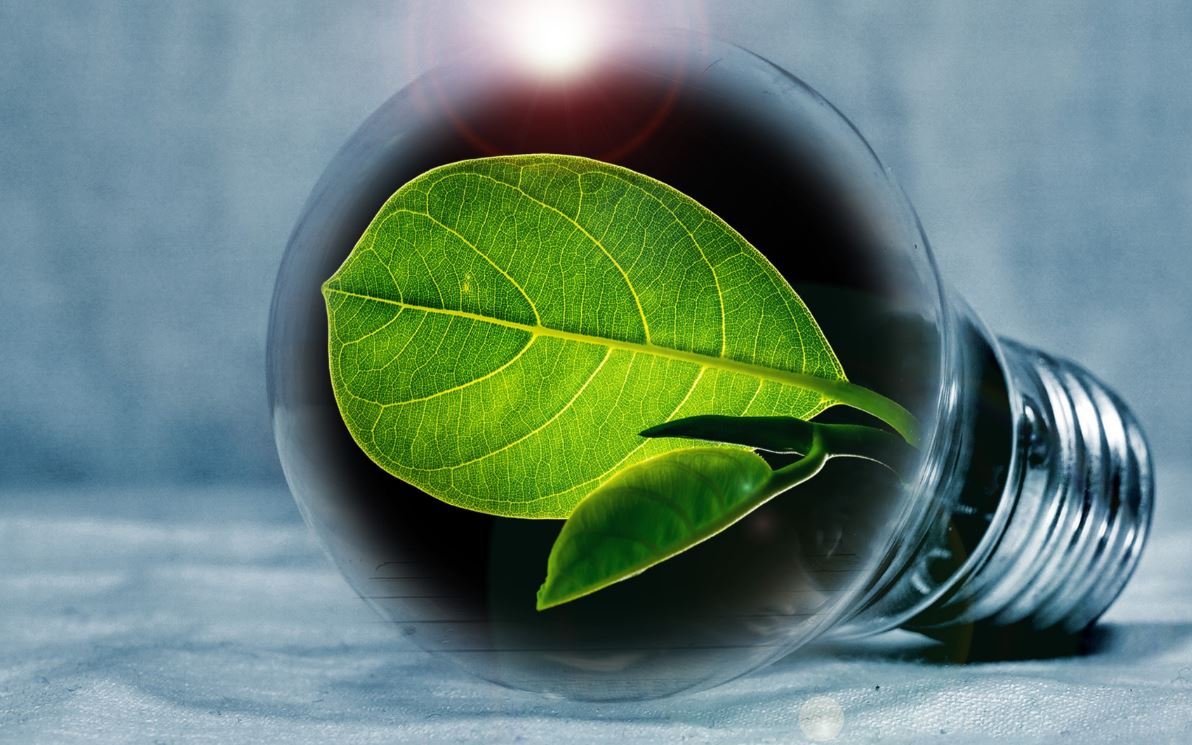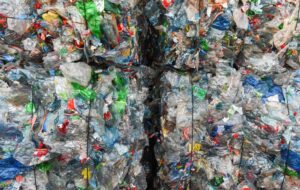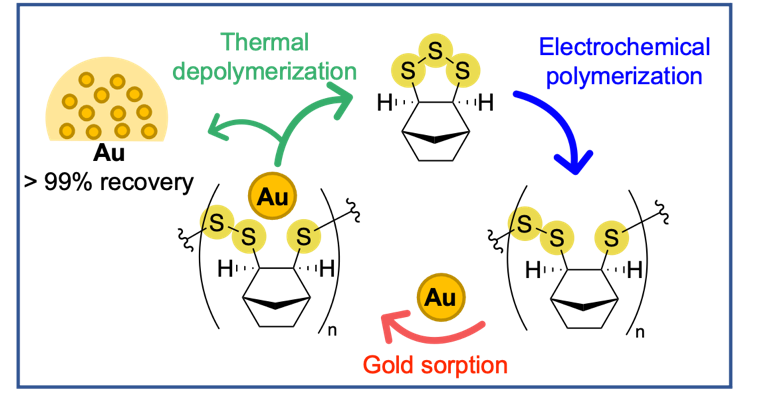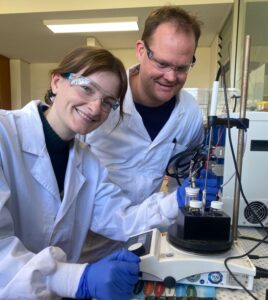
Chemistry researchers at Flinders University have ‘struck gold’ by discovering a new way to make ‘green’ polymers from low-cost building blocks with just a small amount of electricity.
The reaction is fast and occurs at room temperature. No hazardous chemical initiators are required – just electricity, with many potential uses including in gold mining and recycling e-waste, an interdisciplinary team reveal in an article just published in the prestigious Journal of the American Chemical Society.

While hundreds of millions of tonnes of plastic is produced every year, with up to half used for single purposes, the Flinders University research group is working on more sustainable options. The power used in production is a contributor to pollution and global warming.
“The use of electricity to produce new materials is an emerging field of research that opens many doors so new chemicals and polymers can be produced in a more sustainable way,” says co-author Dr Thomas Nicholls, an expert in using electrochemistry to make valuable molecules.
The process begins by adding an electron to the basic building block or monomer. After ‘electrocuting’ the monomer, it reacts with another building block in a chain reaction which leads to the formation of a polymer.
First-author and PhD candidate Jasmine Pople says: “Our method to electrochemically produce polymers provides new materials that are highly functional and environmentally friendly.
“The use of electricity to make valuable molecules is expanding rapidly due to its versatility. Additionally, it may generate less waste than traditional chemical syntheses and it can be powered with renewable energy.”
The key polymer made by the team has sulfur-sulfur bonds in its backbone. These sulfur groups can do useful things like bind precious metals such as gold. The team demonstrated that the key polymer could remove 97% of gold from solutions of relevance to mining and e-waste recycling.

The sulfur-sulfur bonds can also be broken and reformed. This interesting property enabled the team to discover conditions to convert the polymer back to its original building block. This is an important advance in recycling.
Typically, when common plastics are recycled, they are simply heated and reshaped into a new product. This process can cause degradation and down-cycling (conversion to a less valuable material), leading to eventual disposal in landfill.
In contrast, the polymers made in the latest research from Flinders University scientists can be chemically converted back into its constituent building blocks in high yield – meaning that building block can be used again to make new polymers.
The team also carried out quantum mechanical calculations to understand the details of how the reaction works. The findings were surprising and fortuitous.

“The polymerisation has a clever self-correcting mechanism: whenever the wrong reaction occurs, it reverses until the correct reaction proceeds, ensuring a uniform polymer,” says Research Associate in computational and physical chemistry Dr Le Nhan Pham
Future applications of this class of materials include environmental remediation, gold mining, and use of the polymer as an anti-microbial agent.
This work is funded by an ARC Discovery grant ‘Unusual Trisulfide Chemistry’, led by Future Fellow and Matthew Flinders Professor of Chemistry Justin Chalker and Associate Professor Zhongfan Jia in collaboration with Dr Tom Hasell at the University of Liverpool (DP230100587).
The paper ‘Electrochemical synthesis of poly(trisulfides)’ has been published in the Journal of the American Chemical Society (JACS) DOI: 10.1021/jacs.3c03239
https://pubs.acs.org/doi/full/10.1021/jacs.3c03239#
JACS is the flagship journal of the American Chemical Society and the world’s preeminent journal in all of chemistry and interfacing areas of science. JACS has an impact factor of 16.4.

Acknowledgements: The project was supported with generous funding from the Australian Research Council awarded to project leaders Coote, Chalker and Jia (DP200100090, LP200301660, LP200301661, FT220100054, DP210100025 and DP230100587).
The collaborative study was done by the Chemical Synthesis Group in the College of Science and Engineering. Professor Michelle Coote, Associate Professor Zhongfan Jia and Professor Justin Chalker directed the study. The polymer synthesis was led by PhD candidate Jasmine Pople and Research Associate Dr Thomas Nicholls.
Quantum mechanical calculations were completed by Research Associate Dr Le Nhan Pham. Key insights, analysis and application design were contributed by Dr Witold Bloch, Dr Lynn Lisboa, Associate Professor Michael Perkins and Dr Christopher Gibson.

